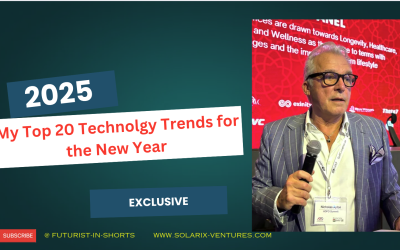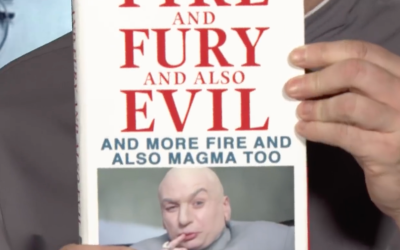
Yes, you heard it here…the industry is being faced with a another Walkman, another iTunes moment, that will fundamentally redefine how the music industry works — from top to bottom, from artist to fan…
Imagine a place where music artists can interact with their fans in ‘real time’, knowing what content they have purchased, which concerts they are about to attend, and when they have safely checked into a venue. A place where artists can have a direct (financial) relationship with each fan? Where fans for the first time are no longer kept away from the artist by the soulless platforms, whos only focus is making money from the mass market audience…
Imagine a music industry where fans can receive hand picked unique contentfrom their heroes — how special would it make them feel? Imagine a Smart Venue where all income from tickets and concessions is immediately available, and where all fan movements and activities are known, where their Identity and privacy remains under the discretion of the fan?
A place where all content distribution is under the artists (sports stars) control — where all aspects of ticketing, collections from ‘use/plays’ can generates immediate income without having to wait years and months?
A place where artists can monetise their brand and value by releasing unique and personalised ‘collectables’ for fans — we call NFAs (Non Fungible Assets), a new asset class that can be immediately tracked and traded, and their uniqueness validated?
Imagine a music industry where Identity Based Ownership secures all Rights for the creator, the performer, songwriter — adding an extra dimensions to copyright such as ‘unique sound’ — something we call 3D Copyright. A new Music Industry that runs on ‘smart data’ that enforces copyright automatically — allows artists to collect on all plays and performances across social media domains, income not currently collected up by collections agencies and platforms, delivering significant extra income opportunities?
Sounds too good to be true…when you experience content as it becomes smart as in ‘smart data’…you will be saying: “why didn’t I think of that?”…
Strap yourselves in…
New Digital Infrastructure for the Music Industry
A digital world needs digital content that can be owned. A data-driven economy (democracy) needs data that is sovereign, with rights, emancipation, and identity. A world where data becomes a digital asset, empowering artists, content creators and individuals, as well as businesses and institutions of all kinds. We are entering a realm where all data will have value and be traded.
Until now data is created, sent, copied and transferred across the Internet depleting any value it had, leaving it both vulnerable and unable to be controlled. For the first time the Zenotta’s Smart Data Protocol gives all data value, identity and ownership and enables it to be traded and exchanged in real time, compliantly and at scale.
The new Digital Infrastructure for the Music Industry is powered by the Zenotta who have pioneered the smart data protocol, is the core infrastructure that is owned by the artists, and the fans in collaboration -(artists create valuable content, fans/consumers deliver the income streams through purchasing power). A new music model that turns everything and all content into ‘smart content’.
Zenotta has introduced a fundamental breakthrough in computer science — an intelligent file format that enables all content to be immediately be tradable, its use automatically tracked and traced anywhere on the Internet. Where every piece of content (song, t shirt, picture, ticket, streaming event, video, live performance) is uniquely encoded under law!
A decentralised file format is the ‘game changer’…and yes there is no lipstick or pig moment, which we will get to later…
The Zenotta approach introduces the fundamental concept of ‘Smart Data’, a decentralised file format leveraging the power of encryption and blockchain technologies to create programmable data that can be truly owned, with identity, rights, intelligence and privacy embedded at the data level within a framework of law. Boom! It is finally here.
Smart data is about to become fundamental to the entire entertainment, sports, gaming industry and will revolutionise the asset and fund management industry, with much broader implications for all capital markets and trading activities. Dare I proposed ‘smart data’ will create a true Internet of Value. And Internet of Files.
Why will this approach succeed where others have failed?
The decentralised file format reinvents the concept of secure, cold storage and enables it to be managed and organised by ‘state’ rather than by location, a known flaw in other systems. This is a fundamental departure from other blockchains and decentralised storage solutions, as data in terms of a ‘files state’ can be searched. This is because the owner of the data, an artists (owner/creator) claim and control over the data is based on identityrather than ‘access’, with immutability of the historic record provided by the Zenotta blockchain.
Of course access does not infer ownership or rights and this issue lies at the heart of the challenges other blockchains are facing, and why previous attempts to solve the challenges in the Music Industry have not succeeded.
With full control over all files (of all size, type including streaming data), imparted through symmetric and asymmetric encryption, a programmable metadata layer and a framework of law, you can choose how your data is used, or not used, in every commercial scenario. Lights out, machine 2 machine without human interventions or central authorities, but also within the same technology stack. And for music artists this means the best security, no Byzantine faults and ‘real time’ audit and financial disbursements.
‘Putting Lipstick on the Pig’
Previous blockchain solutions have attempted to solve the Music Industry problem were merely putting a different colour ‘lipstick on the pig’. Their focus is trying to make sure everyone gets a share of income, by recognising rights, creating a complex thread of relationships all over the place. But without the means to ‘track and trace’ the most important element, the content (song) at any level, many mistaking believed a blockchain will become the immutable record of truth.
Like so many they were trying to solve the wrong problem, with the wrong approach taking on the complexity of unravelling the entire Rights Management space, part of an engrained Music Industry model designed to systemically swindle and exploit artists, while searching for reasons not to pay them.
The compounding issue is all data can be Copied and Edited — part of the data problem. This means a JPEG, an MP3/MP4 and WAV files can be copied as they are neither unique or protected. So all of these early solutions were fighting a losing battle against piracy, counterfeit content and consumers simply sharing music with their friends and family for free. In fact most of early blockchain solutions were recording token movements to the blockchain ledger, and artists wrongly assumed the ‘token’ was linked to the asset, the song, the content — that ensured they would get paid. Whilst we can admire their efforts, they didn’t last long.
The shortfall was none of these blockchain systems could track and keep tabs on the music and other content because you cannot write data directly to a blockchain, they use the token as a proxy for value and the smart contracts points to the content (song) held somewhere? The other issue is blockchains cannot confirm ownership or originality of the content, that it is not a copy, and there is no formal framework of law.
The broader problem of course, is the Internet allows Copy and Edit, is further compounded by streamers’ that cheapen the value of songs as original content, as broadcast MP3 data that can be copied at will. Another example is Spotify’s entry product allows anyone to download the App for free and play free music, interrupted by adverts every 6 plays or 30 minutes. How can this be good for artists?
There are multiple tools that allow anyone to Copy music uploaded on You Tube. Tools advertised with explainer videos of how to make an illegal copy for free — on You Tube. Is this not a prime example of the Internet eating itself and destroying the value of everything. Upload your precious content and we help you can make some money, or on the next page find out how to rip it off for free?
Why are tickets so expensive, yet listening to songs on streaming platforms so cheap or free?
If it’s not the artist who’s making all the money — who is?
Look we know genuine fans don’t mind paying for songs/albums of their favourite artists, they are happy to pay full price for tickets to see their heroes at live events — but why should they pay an inflated price? Genuine fans understand there will be no new music unless artists make money, and yes some do make a lot, but 90% of the industry doesnt make much, and found it galling during Covid to watch streaming platforms double their subscription base, while they received nothing!
Artists have had enough!
Let’s explore how artists can make more moeny than before: using ‘smart identity based ticketing’ and how pricing is set for live events and artist enable streaming. Wouldn’t it be nice if ‘pricing’ was dynamic in terms of supply and demand and bid offer effects? With a ‘smart data’ driven music market pricing for fans can be based on ‘price discovery’ and a function of the Music Industry Market economics. Where price is originally set from a reasonable cost base that doesnt include all the hangers on, to settle at a level based on demand side.
Equally the price paid can be adjusted to reflect the loyalty of the fan, and what else they may have purchased. A fan’s ticket price might by 50% lower because the fan has verifiably purchased every album, or has already attended four live events previously. Notwithstanding the ticket my trigger extra rights — access to VIP or exclusive unique content? Then Boom the music industry and artists ability to monetise their brand, fame and talent takes a different path. Instead of LiveNation and TicketMaster setting price because they have to pay for the industry baggage, and because they can bake in extra profits without Fan loyalty.
This also allows ‘tickets’ to function as a secondary market tradable instrumentamongst other fans, because a ticket has ‘intrinsic value’, is identifiable and can be linked to other concessions, value and offers! This alone entirely changes the dynamic of income for artists, venues, IVOD platforms such as Bingeable a leading blockchain pioneer in music and film offering ‘direct to fan’ models for artists, and strong supporter of the Zenotta ‘smart data’ solution. Another game changer, but also allows artists to keep within current licensing arrangements.
A key aspect of the new Music Industry Infrastructure is it is for artists, and run by artists…
Using ‘smart data protocol’ eliminates all of the non value add activities. The ‘hangers on’, the service providers that add friction, time and cost but do not contribute to the artists creative output, and most important the fans enjoyment and experience…so dump em!
Let us not forget yet the likes of Spotify pays the artists less than 0.001 cent per play? For a Spotify membership the User can play 650,000 songs for their $9.99 per month? A 100k plays should just about make the profit from a single album sale…
This kind of economics is killing the golden goose…
Access and Ownership Rights
At this stage it is worth reminding ourselves the difference between ‘Access’ and ‘Ownership’. Many people believe because they have purchased a song they somehow have the right to pass it on, sell it, copy it, share it or broadcast it. They do not. But the technology in place across the industry — record labels, collections agencies and streamers apprently cannot monitor usage activity — we know this is true. Neither can they manage the rights that come with each piece of content, nor prevent illegal copying, and that is why they refuse the share the real data with the artist. So they have no purpose then? Equally the incumbent streaming platforms will not share the usage data because it will show how rotten to the core and the level of exploitation in the Music Industry there really is.
With ‘smart data’ this all stops, exploitation ends! The protocol attests Identity and the ‘state’ of the content at any one time. As the song or stream passes through the ‘smart data protocol’ this creates a new intelligent file format — that can be searched, browsed, monitored and reported on by current state, but also details of the creator of the content. A validated and signed download signed by Beyonce as unique and verified content. It is brilliantly simple and changes everything. We enter a world where all content has a verifiable owner, each piece of content in uniquely identified and its movements known traced and tracked.
No longer will the record label be able to sell the artist down the river, completing bulk deals with streaming platforms who receive £100m cheques from Spotify and pay the artist a miserly $0.0014 cents per play – refusing to account for number of plays is no longer a defence, as very soon we will be able to see everything. That will expedite artists going direct to fans which is what they want to do anyway, as soon as they are released from current contracts that in many countries are seen as anti-competitive behaviours and busted! And now artists have the means to do it all for themselves with ‘smart data’.
Without the loyalty and spending by fans the music industry would collapse, and platforms are making sure artists are further dis-intermediated form the commercial relationship with the fan. But artists still owns the fan base on Instagram, Twitter and Facebook and can and will go direct and keep it all…
The direct to fan model has for a long time been contemplated — and now a Zenotta powered new ∂igital Music Industry that runs on ‘smart data’ allows artists to take back control and own their future…
Author: Nick Ayton © Nick Ayton 2021
About the author
Nick Ayton is a Deep Technology though leader and advises company board, investors a well know Blockchain and Crypto evangelist and works at the forefront of AI and Quantum Computing



